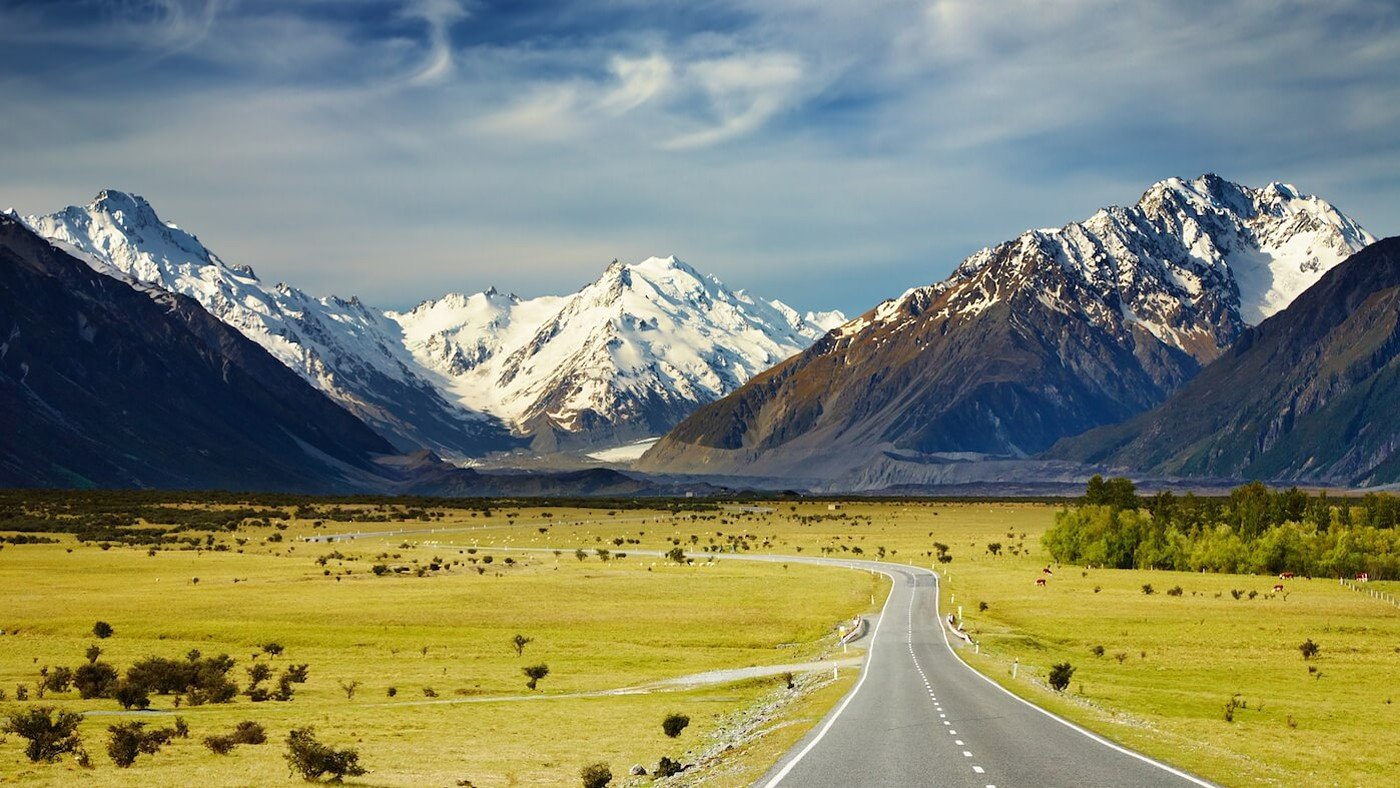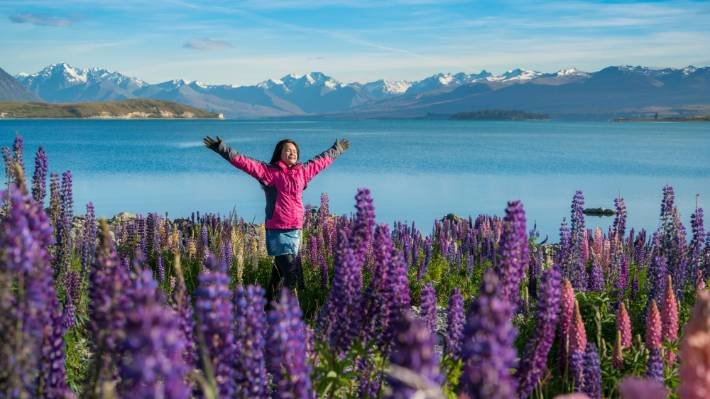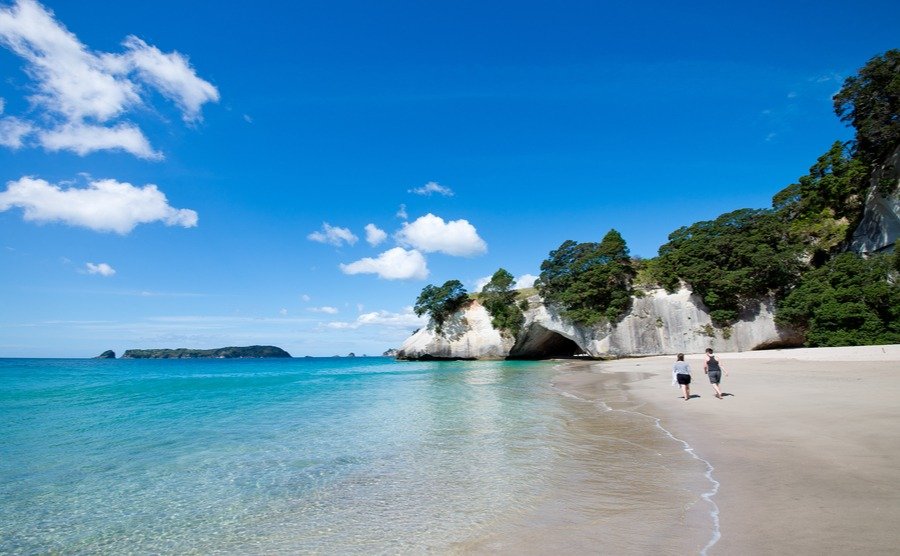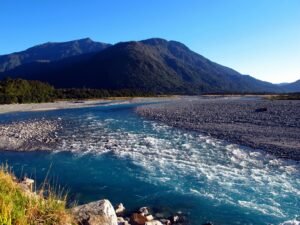
New Zealand, or Aotearoa in Maori, is a land of stunning natural beauty, diverse landscapes, and a rich cultural heritage. Traveling to this island nation is a dream for many, but deciding when to go can be a daunting task due to its ever-changing climate and unique seasonal experiences. In this comprehensive travel guide, we will explore the best times to visit New Zealand, highlighting the pros and cons of each season and helping you make an informed decision for your next adventure.
1. Understanding New Zealand’s Climate
Aotearoa’s unique geography results in a wide range of climates. The North Island tends to be warmer and wetter, while the South Island is cooler with more dramatic weather changes. Coastal regions enjoy milder temperatures, while the interior can experience more extreme weather patterns.
2. Best Time to Visit New Zealand
Choosing the best time to visit New Zealand depends on your preferences and the experiences you’re seeking. Let’s explore each season in detail:
3. Spring in New Zealand (September to November)

Overview: Spring is a season of rebirth in New Zealand. Flowers bloom, and the landscapes turn lush and green. The weather is generally mild, making it a great time for outdoor activities.
Pros:
- Mild temperatures and fewer tourists.
- Ideal for hiking and witnessing the stunning flora.
- Spring festivals like the famous Trentham Gardens Spring Festival.
Cons:
- Unpredictable weather, occasional rain showers.
- Snow still present in higher elevations.
Activities and Festivals:
- Visit the beautiful Wellington Botanic Garden.
- Explore Rotorua’s geothermal wonders.
- Attend the Hawke’s Bay Food and Wine Classic (F.A.W.C!).
4. Summer in New Zealand (December to February)

Overview: Summer in New Zealand is the peak tourist season. The weather is warm, and the days are long, allowing for extended outdoor adventures.
Pros:
- Ideal for beach vacations and water sports.
- Abundance of outdoor events and festivals.
- Longer daylight hours for exploration.
Cons:
- High prices for accommodations and activities.
- Crowded tourist spots.
- Booking accommodations well in advance is necessary.
Activities and Festivals:
- Visit Abel Tasman National Park for kayaking and hiking.
- Experience the vibrant Wellington Sevens Rugby Tournament.
- Attend the iconic New Year’s Eve celebrations in Queenstown.
5. Autumn in New Zealand (March to May)

Overview: Autumn is a quieter time to visit New Zealand. The weather is still pleasant, and the landscapes display stunning autumnal colors.
Pros:
- Mild weather with fewer crowds.
- Perfect for wine tours and tasting.
- Spectacular foliage in places like Arrowtown.
Cons:
- Some tourist attractions may have reduced hours.
- Weather can become unpredictable as autumn progresses.
Activities and Festivals:
- Explore the vineyards of Marlborough.
- Attend the Hokitika Wildfoods Festival.
- Witness the fiery colors of the Arrowtown Autumn Festival.
6. Winter in New Zealand (June to August)

Overview: Winter is ski season in New Zealand. While the temperatures drop, the South Island becomes a playground for snow enthusiasts.
Pros:
- Fantastic skiing and snowboarding opportunities.
- Lower accommodation prices.
- Enjoy cozy evenings by the fireplace.
Cons:
- Limited accessibility to certain areas due to snow.
- Shorter daylight hours.
Activities and Festivals:
- Ski or snowboard at Queenstown or Wanaka.
- Attend the Matariki Festival, celebrating Maori New Year.
- Explore Rotorua’s geothermal wonders in a steaming winter landscape.
7. Special Considerations
- School Holidays: If traveling with children, be aware of New Zealand’s school holidays, as popular tourist spots can get crowded.
- Budget Travel: Shoulder seasons (spring and autumn) offer a good balance between favorable weather and budget-friendly options.
- Crowds and Accommodation: Booking accommodations well in advance is crucial during the peak summer season.
8. Conclusion: Your Perfect Time to Discover New Zealand
In conclusion, the best time to visit New Zealand depends on your preferences and the experiences you seek. Each season offers unique opportunities and challenges, so consider what matters most to you – whether it’s skiing in winter, hiking in spring, or basking on the beach in summer. Regardless of the season, New Zealand’s breathtaking beauty and warm hospitality will make your trip a memorable one. Plan wisely, and you’ll have the adventure of a lifetime in Aotearoa.




